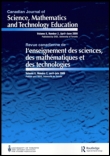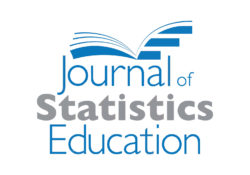tandfonline.com har udgivet en rapport under søgningen “Teacher Education Mathematics”: Abstract Abstract The scientific substantiations of quality have been applied to models that pertain to mathematical statistics, the probability theory, the information theory, fuzzy systems, graphic methods, time series, and algebraic and numerical methods. To these, this article aims to present a new method of applying mathematical modelling in an economy based on knowledge, by using the concept of the definite integral, the composite function, and mathematical optimisation. The research methods used in the realisation of this article are bibliographic research, creation of new models, and problem-solving. Mathematical modelling, the simulation of the quality of life, etc. are methods and techniques of both theoretical and practical scientific approach, which are likely to lead to a better understanding of the role… Continue Reading →
Like this:
Like Loading...
eric.ed.gov har udgivet: The quality of mathematics assignments from teachers to students is one important element that determines whether learning is effective or not. To make quality math assignments requires knowledge from the teacher about content and students, who are subdomains of mathematical knowledge to teach. This knowledge needs to be developed in prospective mathematics teachers since programmed teacher education. By focusing on one of the basic concepts in mathematics, namely the concept of function, research was conducted on 25 mathematics teacher candidates. Through interactions that occur in modified focus group discussions, we want to find out how prospective teachers construct knowledge about the concept of functions and difficulties of students. The results showed that in constructing the concept of functions and difficulties of students, teacher candidates worked backward, there… Continue Reading →
Like this:
Like Loading...
eric.ed.gov har udgivet: Competency-based education has received growing attention in recent years as a way to address preK-12 learning goals. In competency-based education, students are promoted to the next course of study or grade level in each subject area after demonstrating mastery of identified learning targets aligned to standards. Westminster Public Schools in Colorado began the transition to a competency-based education system in 2009. In the Westminster Public Schools system, courses of study are organized according to performance level rather than according to traditional grade levels. Westminster Public Schools, a member of the Regional Educational Laboratory Central College and Career Readiness Research Alliance, asked for assistance in examining how long it takes students in the district to progress through their performance levels, especially students who are below their traditional grade… Continue Reading →
Like this:
Like Loading...
eric.ed.gov har udgivet: Recent results from national and international assessments continue to show a need for improvement in math achievement among U.S. students. For example, 60 per-cent of grade 4 students scored below the proficient level on the 2015 National Assessment of Educational Progress. In an era of increasingly rigorous state standards, teachers at all grade levels face heightened expectations to deepen their students’ understanding of math concepts. Teachers may benefit from professional development (PD) that strengthens their own conceptual understanding of math, particularly elementary school teachers who are less likely to formally study math in college than secondary teachers are. To date, there is limited convincing evidence on the effectiveness of intensive, content-focused PD, a gap this study intended to address. This study examined the implementation and impact of… Continue Reading →
Like this:
Like Loading...
tandfonline.com har udgivet en rapport under søgningen “Teacher Education Mathematics”: Abstract Abstract Science education research has built a strong body of work on students’ understandings but largely overlooked the nature of science knowledge itself. Legitimation Code Theory (LCT), a rapidly growing approach to education, offers a way of analyzing the organizing principles of knowledge practices and their effects on science education. This article focuses on one specific concept from LCT—semantic gravity—that conceptualizes differences in context dependence. The article uses this concept to qualitatively analyze tertiary student responses to a thermal physics question. One result, that legitimate answers must reside within a specific range of context dependence, illustrates how a focus on the organizing principles of knowledge offers a way forward for science education. Résumé La recherche en enseignement des sciences… Continue Reading →
Like this:
Like Loading...
eric.ed.gov har udgivet: Teachers’ content knowledge and beliefs about teaching and learning are among the key factors for effective teaching and, in turn, for student achievement-related outcomes. This study explores the extent to which K-8 math teachers’–who teach in high-poverty urban schools–professional background, motivational beliefs, and mathematical knowledge for teaching (MKT) have an impact on students’ math achievement. Hierarchical linear modeling (HLM) results indicated that although students’ prior mathematics achievement was the most determining factor of their subsequent math achievement, teachers’ MKT and holding a bachelor’s degree in mathematics had significant positive effects on students’ math achievement. Results provide support for professional development (PD) to focus on improving mathematics teachers’ mathematical knowledge for teaching. Results may also have implications for education policies at both the district and state level for… Continue Reading →
Like this:
Like Loading...
eric.ed.gov har udgivet: One major issue in mathematics teacher education regards the role of university-level mathematics in teacher knowledge. In the context of a design-based research project, an advanced mathematics teacher education course aimed at strengthening the connections between university-level mathematics and school mathematics was developed. In this paper, I present a case study, conducted within the education course, in which I analyse the characteristics of teacher knowledge produced by five small groups of pre-service teachers in an open-ended problem-based learning task. The results indicate the problem-based learning approach has the potential for enhancing specialised content knowledge such as knowledge of different representations of and applications of mathematical concepts. The results also highlight the challenges in using this approach for enhancing horizon content knowledge such as knowledge about the relationships… Continue Reading →
Like this:
Like Loading...
tandfonline.com har udgivet en rapport under søgningen “Teacher Education Mathematics”: ABSTRACT ABSTRACT Due to the increased role of statistics in current curriculum standards, there is at present a call for attention to secondary teachers’ knowledge for teaching statistics in teacher education. This article reports the results of a study that answered this call by addressing mathematics teachers’ knowledge for teaching graphing of bivariate categorical data. Novel curriculum materials to develop such knowledge were written then implemented with mathematics teachers in courses at four post-secondary schools. Results showed that prior to use of the materials, teachers’ graphical competence was limited with teachers often utilizing frequencies when analyzing the data. Following use of the materials, they were more likely to correctly use relative frequencies in their analysis and expanded their knowledge of… Continue Reading →
Like this:
Like Loading...
tandfonline.com har udgivet en rapport under søgningen “Teacher Education Mathematics”: ABSTRACT ABSTRACT Amid the implementation of new curriculum standard regarding statistics and new recommendations for preservice secondary mathematics teachers (PSMTs) to teach statistics, there is a need to examine the current state of PSMTs’ knowledge of the statistical content they will be expected to teach. This study reports on the statistical knowledge of 217 PSMTs from a purposeful sample of 18 universities across the United States. The results show that PSMTs may not have strong Common Statistical Knowledge that is needed to teach statistics to high school students. PSMTs’ strengths include identifying appropriate measures of center, while weaknesses involve issues with variability, sampling distributions, p-values, and confidence intervals. Link til kilde
Like this:
Like Loading...



